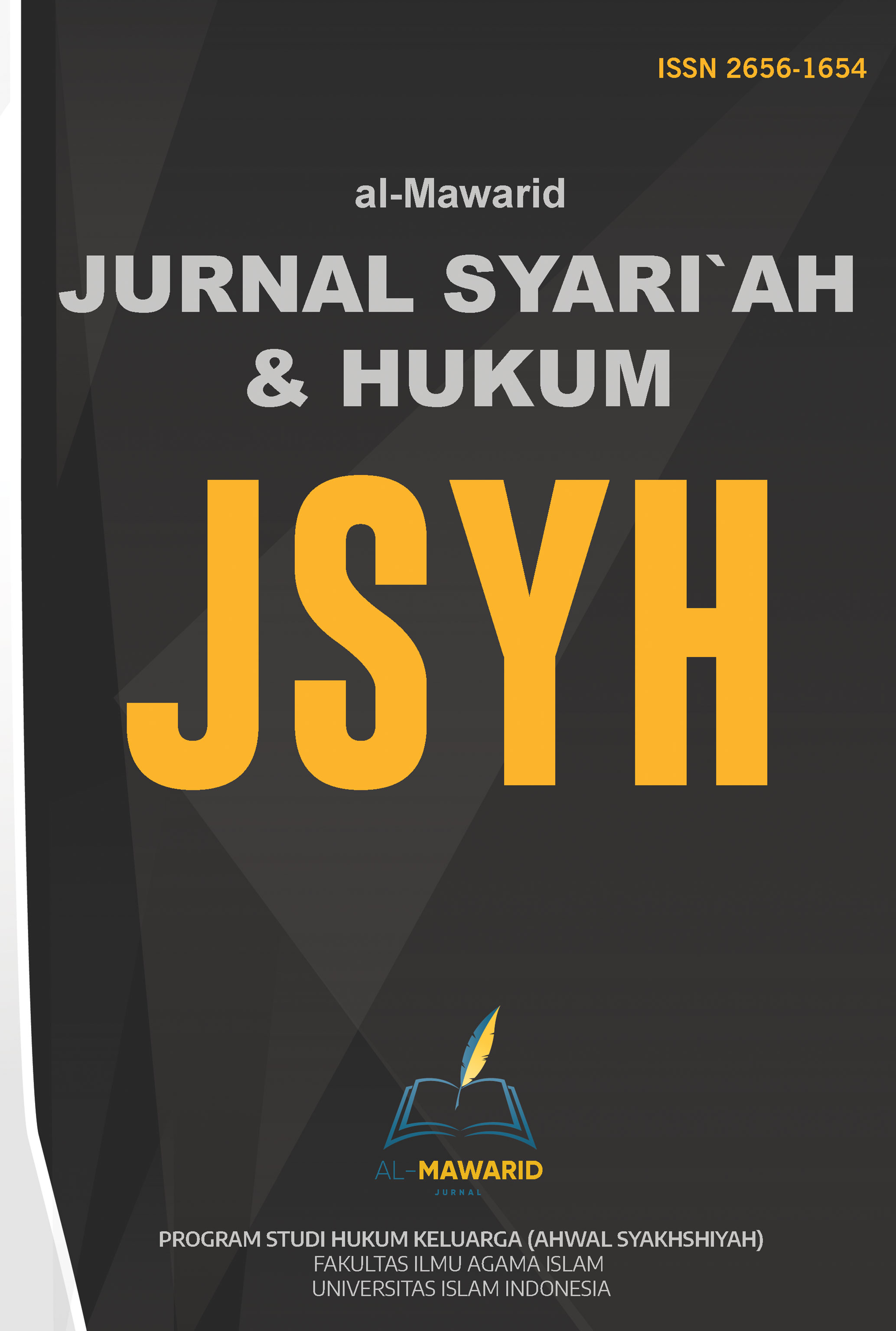Main Article Content
Abstract
ABSTRAK
Seiring berkembangnya permasalah-permasalahan yang terjadi di tengah masyarakat, pembaruan hukum diperlukan untuk menjawab persoalan-persoalan di masa kini yang sebelumnya belum pernah terjadi di masa lalu, salah satunya hukum keluarga bidang kewarisan. Persoalan waris mewaris adalah persoalan yang pasti terjadi dan akan dialami oleh manusia, sehingga hukum waris sebagai sarana bagi penyelesaian waris selalu menarik. Permasalahan yang fenomenal dalam hukum keluarga bidang kewarisan yaitu tentang status cucu sebagai ahli waris pengganti. Padahal dahulu, cucu tidak dapat menggantikan posisi ayahnya untuk menerima harta warisan kakeknya karena terhalang oleh pamannya. Namun konsep ini dirasa tidak adil bagi si cucu, sehingga tercetuslah konsep wasiat wajibah yang dipelopori oleh negara Mesir, yang kemudian konsep tersebut banyak yang mengadopsinya termasuk Indonesia, yang disebut dengan istilah ahli waris pengganti. Sistematika penulisan paper ini yaitu diawali dengan pendahuluan yang berisi alasan akademik atau latar belakang penulisan artikel ini. Kemudian dilanjutkan pemaparan pembahasan tentang sejarah tercetusnya konsep wasiat wajibah Mesir, konsep ahli waris pengganti di Indonesia, dan yang terakhir pembahasan tentang relevansi wasiat wajibah terhadap konsep ahli waris pengganti di Indonesia, lalu ditutup dengan kesimpulan dan kontribusi.
Kata Kunci: kewarisan Islam, wasiat wajibah Mesir, ahli waris pengganti
ABSTRACT
Along with the development of problems that occur in society, legal reform is needed to answer problems in the present that have never occurred in the past, one of which is family law in the field of inheritance. The issue of inheritance is a problem that must occur and will be experienced by humans, so that the law of inheritance as a means of settlement of inheritance is always interesting. A phenomenal problem in family law in the field of inheritance is the status of grandchildren as a substitute heir. Whereas in the past, grandchildren could not replace their father's position to receive his grandfather's inheritance because it is obstructed by his uncle. However, this concept was deemed unfair to the grandchildren, so that appears the concept of wasiat wajibah that pioneered by the Egyptian state, which later many countries adopted these concepts, including Indonesia, which is referred to as a substitute heir. The systematic writing of this paper begins with an introduction containing the academic reasons or background for writing this article. Then it is followed by a discussion on the history of the emergence of the Egyptian wasiat wajibah, the concept of a substitute heir in Indonesia, and finally a discussion of the relevance of the wasiat wajibah to the concept of a substitute heir in Indonesia, then closes with conclusions and contributions.
Keywords: Islamic inheritance, Egyptian wasiat wajibah, substitute heirs
Keywords
Article Details
Copyright (c) 2021 al-Mawarid Jurnal Syari'ah dan Hukum

This work is licensed under a Creative Commons Attribution-NonCommercial-ShareAlike 4.0 International License.
- Authors retain copyright and grant the journal right of first publication with the work simultaneously licensed under a Creative Commons Attribution License that allows others to share the work with an acknowledgement of the work's authorship and initial publication in this journal.
- Authors are able to enter into separate, additional contractual arrangements for the non-exclusive distribution of the journal's published version of the work (e.g., post it to an institutional repository or publish it in a book), with an acknowledgement of its initial publication in this journal.
- Authors are permitted and encouraged to post their work online (e.g., in institutional repositories or on their website) prior to and during the submission process, as it can lead to productive exchanges, as well as earlier and greater citation of published work.
